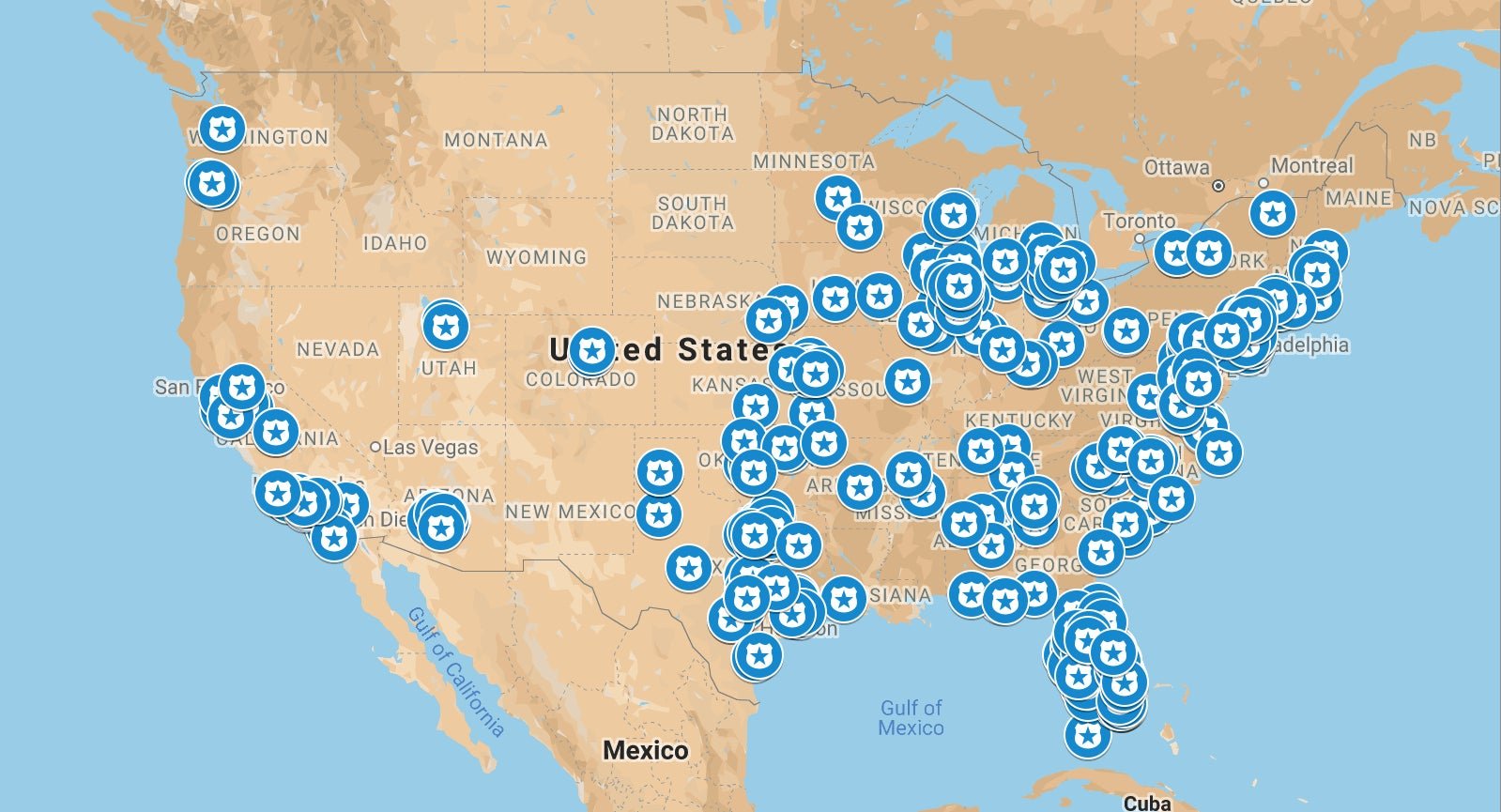Check to see if your police department is getting information from Amazon’s Ring cameras
More than 400 police agencies across the United States are working with the Amazon-owned Ring home surveillance system, and now you can check if your local department is one of them.


More than 400 police agencies across the United States are working with the Amazon-owned Ring home surveillance system, and now you can check if your local department is one of them.
Ring disclosed the number today (Aug. 28), and it’s double what reports had previously revealed. It also published an interactive map where anyone can check whether their hometown cops are part of the controversial effort through which police can see all the Ring cameras in a given neighborhoods, can seamlessly request the footage, and are encouraged to promote the device.
The map, where you can also check when each department started working with Ring, is available here, along with a blog post about the Ring-law enforcement partnership. The company will be updating the map as new departments are added, it says.
The release coincided with an in-depth Washington Post story, which disclosed the full number of agencies for the first time.
The Ring system includes its surveillance cameras (most famously the motion-activated camera doorbells) as well as the Neighbors app (where people can share footage from their cameras and discuss crime in their areas) and the Neighborhood Portal (where police can see a map of Ring cameras and quickly submit a request for footage during an investigation). In recent months, Vice, CNET, and Gizmodo have reported on police’s close relationship with the company, which, for example, gives departments discounts or free cameras to distribute among local residents. In some cases, police have used the giveaways as leverage to demand that people hand over their footage, although Ring says it is supposed to be voluntary.
The company said in a statement sent to Quartz that “customers, not law enforcement, are in control of their videos.” It added:
Videos are shared through the Neighbors program only if: 1) a customer chooses to post it publicly on the Neighbors app; 2) explicit consent is provided by the customer. Law enforcement agencies who participate in the Neighbors app must go through the Ring team when making a video request to customers. Customers can choose to opt out or decline any request, and law enforcement agencies have no visibility into which customers have received a request and which have opted out or declined.
Critics worry about the privacy implications of such a built-out surveillance network, especially one that is controlled by a private company. What’s more, “neighborhood watch” apps like Neighbors or Nextdoor have had problems with racism and racial profiling, after users have raised alarm after merely seeing people of color in their areas.
This story was updated with a statement from Ring.